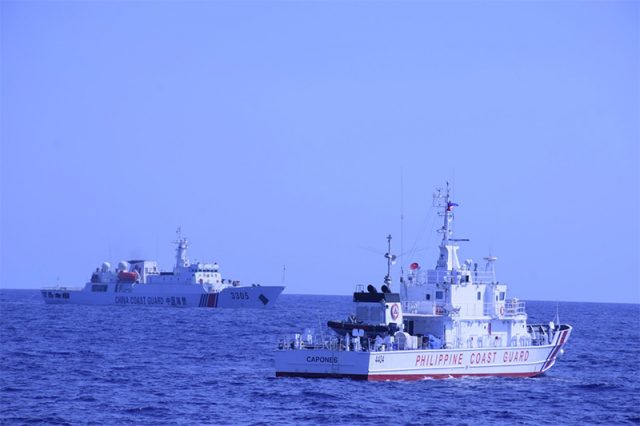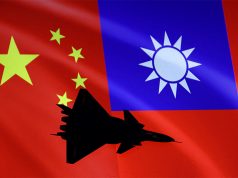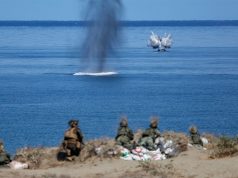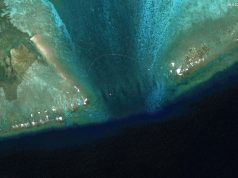
WASHINGTON — The Philippines’ removal of a Chinese floating barrier near the Scarborough Shoal in a disputed part of the South China Sea was “a bold step in defending their own sovereignty,” a senior U.S. defense official said on Thursday.
Manila had expressed outrage over China’s placement of a long, ball-buoy barrier near the rocky outcrop, some 200 km (124 miles) from the Philippines. It has seen years of intermittent flare-ups over sovereignty and fishing rights.
The Philippines coast guard said on Monday it executed a “special operation” to remove the barrier, calling it a violation of international law and a hazard to navigation.
During a congressional hearing, U.S. Deputy Assistant Secretary of Defense for South and Southeast Asia Lindsey Ford commended the Philippines’ action and reaffirmed Washington’s security commitments to its Asian ally.
“The department has been incredibly clear that when it comes to our treaty commitments to the Philippines, we believe an armed attack against Philippine Armed Forces, public vessels, aircraft, apply to the South China Sea. That includes the Philippine Coast Guard,” Ford told a House of Representatives subcommittee on foreign affairs.
“We stand by those commitments absolutely,” she said.
The Chinese coastguard late on Wednesday disputed the Philippine version of the events, saying the Chinese side had retrieved the barrier on Saturday after deploying it a day earlier when a Philippine vessel “illegally” entered the area.
China’s foreign ministry has defended the actions of its coast guard as “necessary measures” after a Philippine bureau of fisheries vessel “intruded” into its waters on Friday.
The incident highlights the strained relations between China and the Philippines at a time when Manila is rapidly strengthening military ties with Washington.
Ford said the U.S. was “thrilled” about the implementation of the Enhanced Defense Cooperation Agreement, a deal reached earlier this year between Manila and Washington that gives the U.S. access to four more military bases in the Philippines.
Control of the strategic Scarborough Shoal, seized in 2012 by China, is a sensitive issue as it formed part of a legal case filed by the Philippines at the Permanent Court of Arbitration in the Hague. The court ruled in 2016 that Beijing’s claim to 90% of the South China Sea had no basis under international law.
China has refused to recognize the landmark ruling.
– Reporting by Michael Martina and David BrunnstromEditing by Chris Reese and Rami Ayyub









